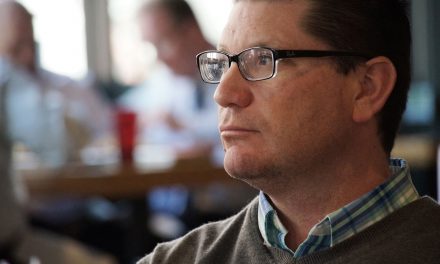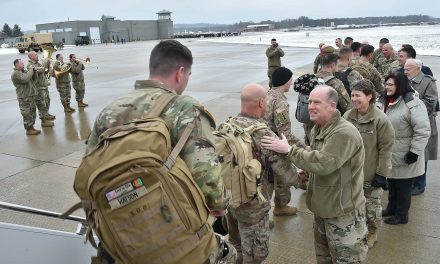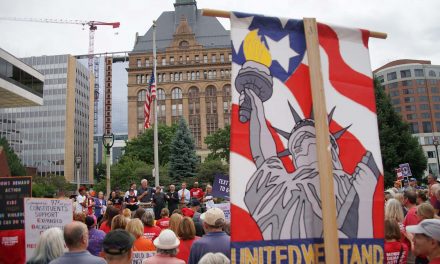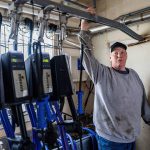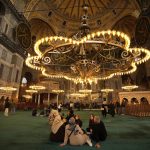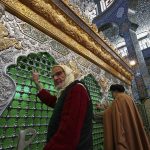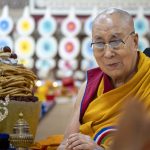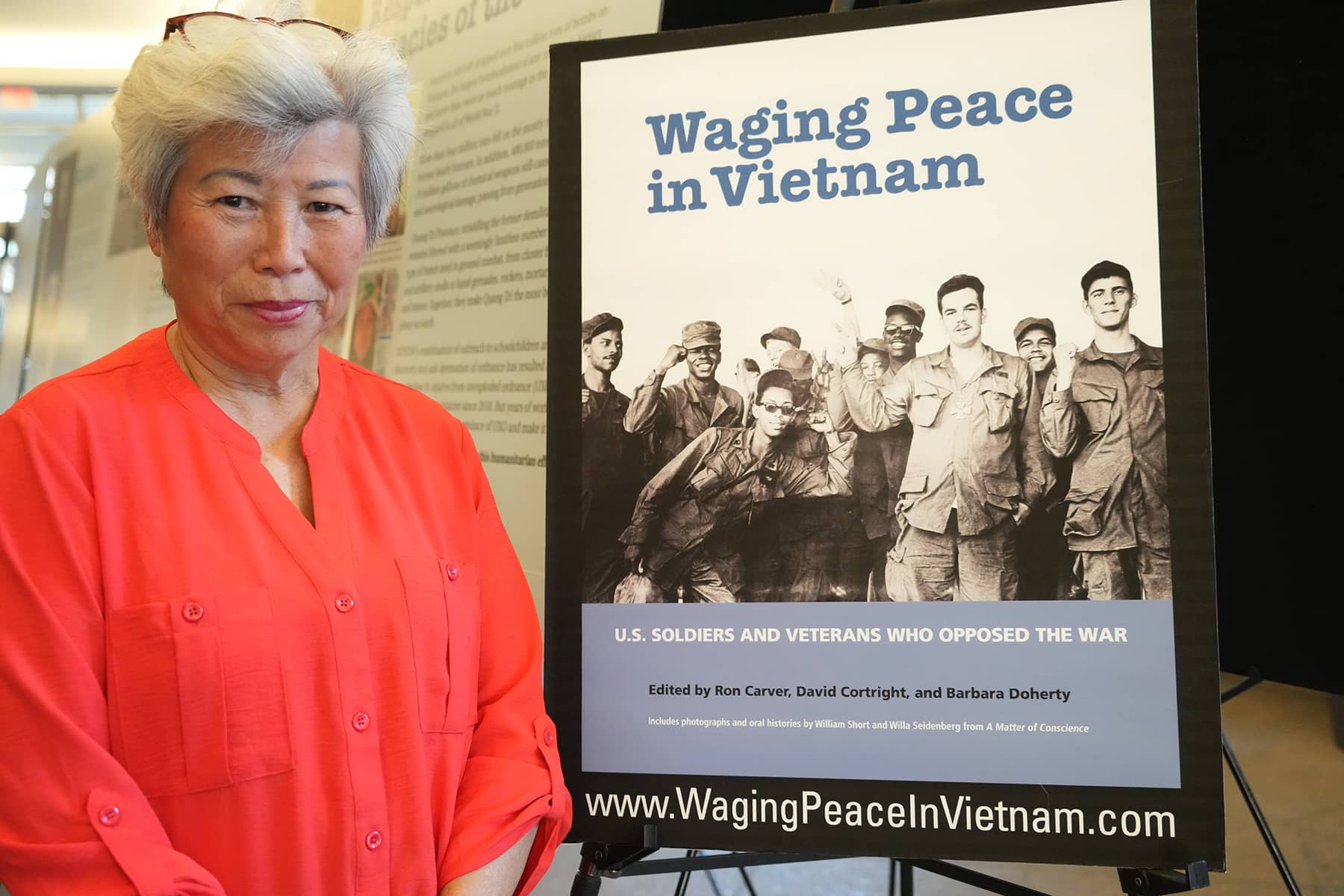
Marquette University hosted a keynote event featuring Le Ly Hayslip, the founder of the Global Village Foundation, as part of the “Waging Peace in Vietnam” series in April.
Hayslip, a celebrated author and peace activist, shared her remarkable 35-year journey of healing and reconciliation since the Vietnam War, aiming to raise $35,000 to support the Village of Hope Orphanage in Danang.
FROM WAR-TORN VIETNAM TO GLOBAL ADVOCACY
Hayslip returned to her homeland of Vietnam in March 1986, reuniting with her mother after years of separation. The reunion ignited her vision to heal the wounds left by the U.S.-Vietnam War. By February 1988, Hayslip had embarked on a transformative journey with American Vietnam Veterans for Peace, journalists, and families of war participants.
Her 1989 memoir, When Heaven and Earth Changed Places, caught the attention of Oliver Stone and inspired his 1993 film Heaven & Earth.
“For you see, the face of destiny or luck or god that gives us war also gives us other kinds of pain: the loss of health and youth; the loss of loved ones or of love; the fear that we will end our days alone. Some people suffer in peace the way others suffer in war. The special gift of that suffering, I have learned, is how to be strong while we are weak, how to be brave when we are afraid, how to be wise in the midst of confusion, and how to let go of that which we can no longer hold. In this way, anger can teach us forgiveness, hate can teach us love, and war can teach us peace.” ― Le Ly Hayslip
In 1989, during the U.S. embargo against Vietnam, Hayslip received permission to build a medical clinic, marking the beginning of her humanitarian mission. A decade later, she established the Global Village Foundation, focusing on providing aid and fostering reconciliation between the U.S. and Vietnam.
RECONCILIATION AND ONGOING EFFORTS
At the Marquette University event, Hayslip reflected on the current U.S.-Vietnam relationship, highlighting significant contributions from individuals in the Milwaukee area.
“We celebrate our journey, honor our companions, and look forward to a brighter future. You can see the seeds of love for Vietnam,” said Hayslip. “Your support has been the driving force behind our efforts for 35 years and allowed us to reach beyond our humble goals. In supporting our cause, you have helped us aid underprivileged children, sustain the Village of Hope in Danang, and assist those still affected by Agent Orange.”
Hayslip’s outreach efforts aim to raise funds for the Village of Hope Orphanage, which houses 126 children. The proceeds from her speaking engagements will also be directed towards aid supplies for the upcoming Heaven & Earth Pilgrimages in 2024 and 2025.
WAGING PEACE AND PROMOTING HEALING
The keynote was part of the broader “Waging Peace” exhibition, which ran from April 1 to 17 at UW-Madison, UW-Oshkosh, and Marquette University. The exhibitions focused on the role that active-duty U.S. troops played in helping to bring the Vietnam War to an end, and the ongoing efforts to build bridges of reconciliation. The programs offered forums with Vietnam veterans and leaders, documentaries, music, and various presentations.
Among the presenters at the Marquette exhibition was Vietnam veteran Chuck Searcy, who has devoted his life to removing unexploded ordnance in Vietnam. Searcy helped launch Project RENEW, which has defused more than 815,000 lethal unexploded bombs and landmines.
Hayslip was officially named a Peacemaker in Residence at Marquette University, sharing her experiences as recounted in her memoir.
“Le Ly Hayslip has much to teach us about how to work for a more peaceful world. From speaking out as a witness to the destructiveness of war, to sharing her courageous journey of healing, reconciliation, and humanitarian action, her story shows the remarkable endurance of the human spirit,” said Chris Jeske, Associate Director of Marquette’s Peacemaking Center.
PERSONAL REFLECTIONS AND CONTINUING THE LEGACY
The message of Hayslip’s keynote had a very clear theme: the journey of reconciliation and healing is ongoing. She invited the public to join in the meaningful work, emphasizing the impact of their contributions.
The event at Marquette University was a powerful reminder of the enduring legacies of the Vietnam War and the ongoing efforts to promote peace and reconciliation. As Hayslip aptly put it, “The war is over, but the work of healing continues.”
Hayslip’s narrative was deeply personal, as she recounted her early years in central Vietnam, describing the idyllic yet tumultuous childhood marked by the war. She spoke of the resilience required to navigate life amidst conflict and the challenges of rebuilding.
“The war is over, but the work of healing continues,” said Hayslip.
© Photo
Lee Matz
































